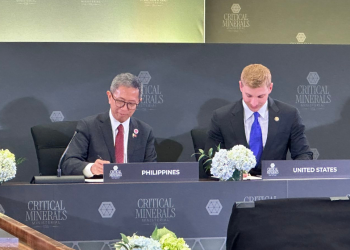Albay Representative Jose Ma. Clemente S. Salceda says Congress is expected to finalize and ratify the harmonized version of the proposed mining fiscal regime shortly after reconvening on June 2.
In a Business World exclusive interview, Salceda said that the Congress would take a day to review the proposed arrangement.
The proposed fiscal regime aims to streamline and simplify tax structures for the mining industry while ensuring equitable profit-sharing. The House approved its version in September 2023 under House Bill No. 8937, while the Senate continues to push for its version.
Key components of the proposed regime included an eight-tier, margin-based royalty regime ranging from 1.5% to 5%, while the Senate version uses a five-tier system ranging from 1% to 5%.
Additionally, both chambers suggested a 10-tier system ranging from 1% to 10% for additional profit taxation.
The Senate version, meanwhile, included a controversial provision proposing a ban on raw ore exports within a five-year window to encourage domestic mineral processing.
However, Salceda criticized the proposed ban, advocating instead for an export tax to generate government revenue and provide time for developing the country’s refining capacity.
Salceda argued that the five-year timeframe proposed in the Senate version is insufficient to establish a robust mineral refining capacity. He emphasized that imposing an export tax would enable the government to better value minerals while generating additional revenue.
The Chamber of Mines of the Philippines (COMP) expressed concerns over the export ban, saying it could deter investors and undermine the industry’s sustainability.
Meanwhile, Analysts noted that despite the tax incentives in the proposed regime, constructing processing plants remains a capital-intensive endeavor.
Senate President Francis G. Escudero highlighted the importance of processing facilities, asserting that their construction would help reduce steel prices.
The bicameral session is seen as the final step before the measure is ratified and becomes law, marking a pivotal shift in the governance of the mining industry in the Philippines.














